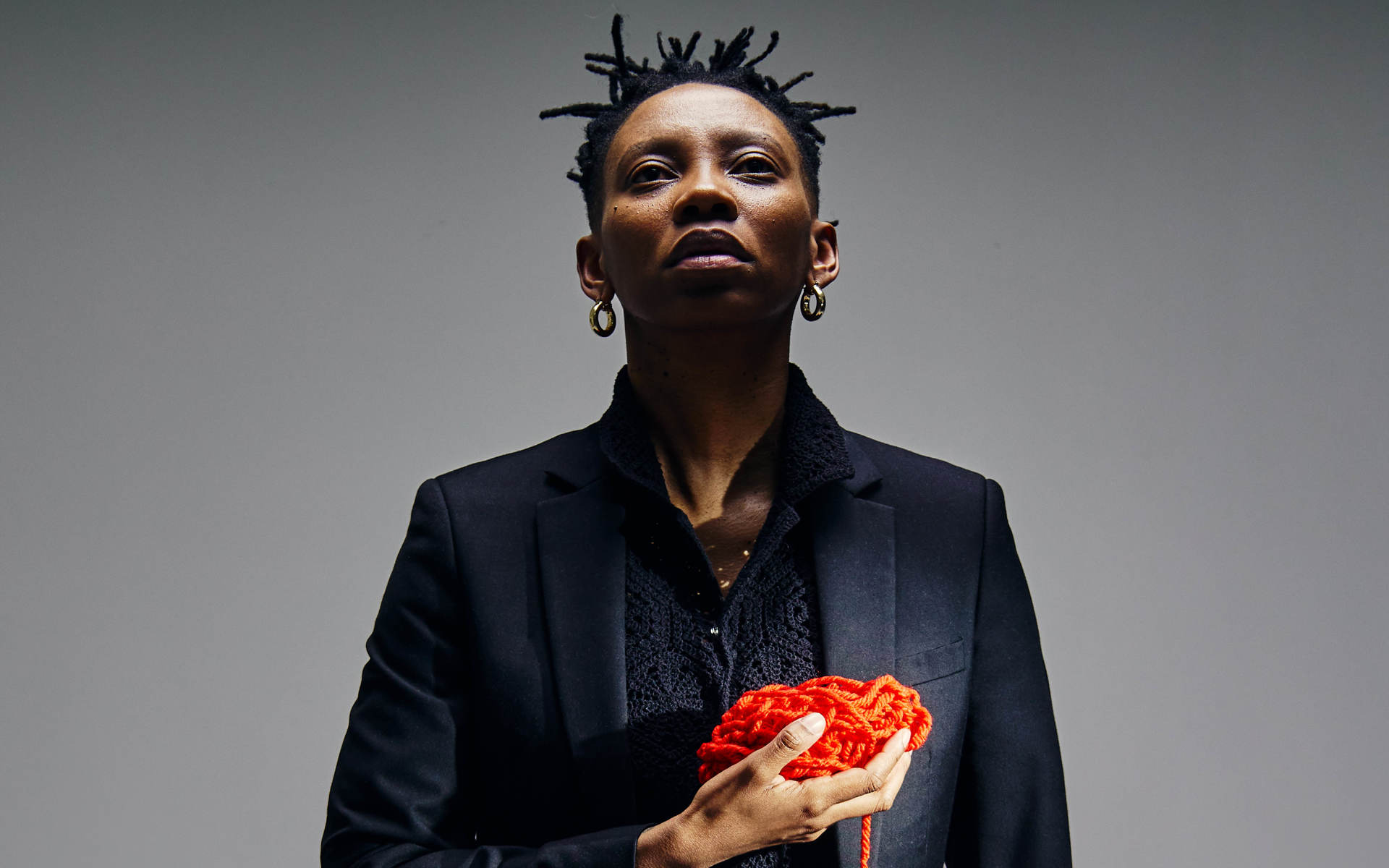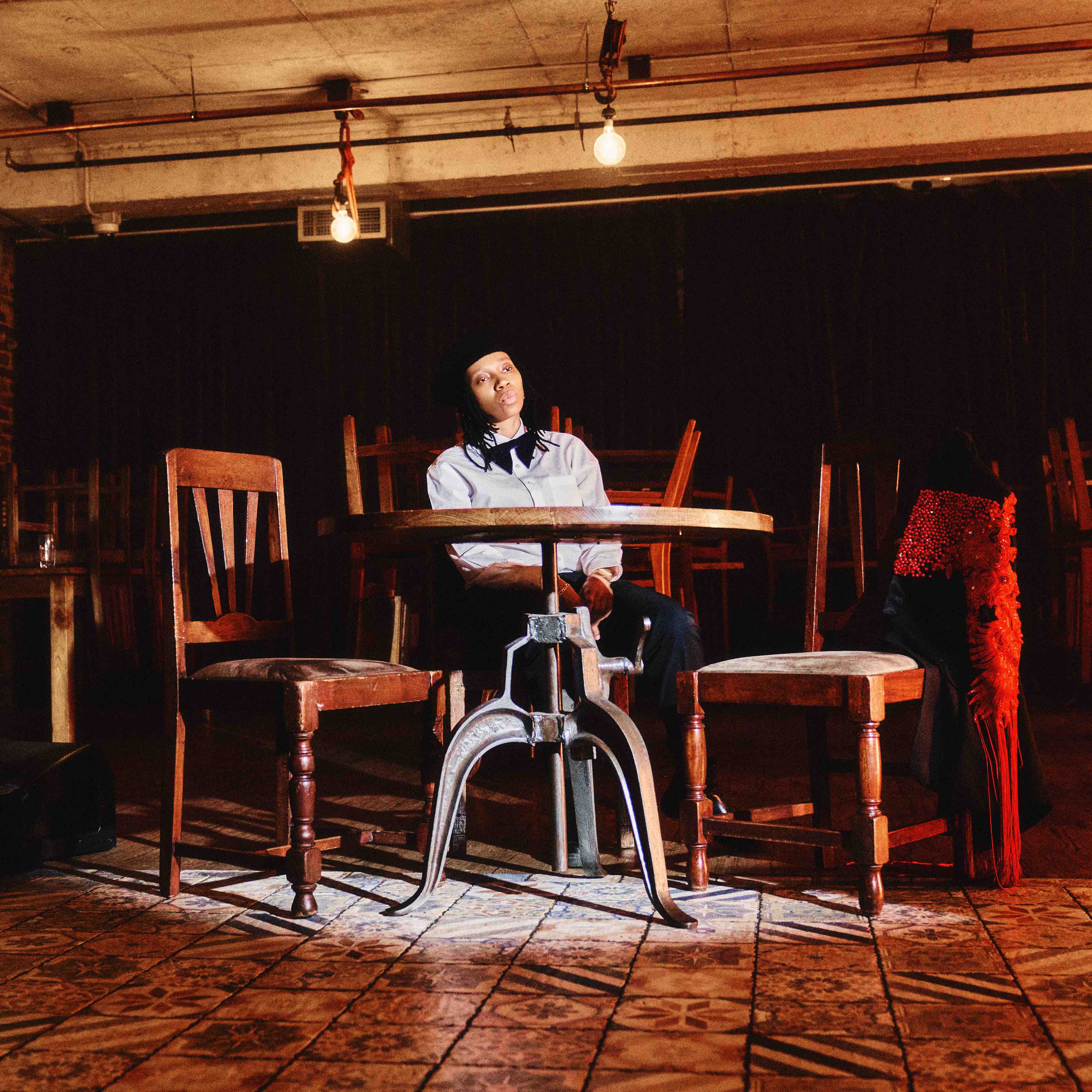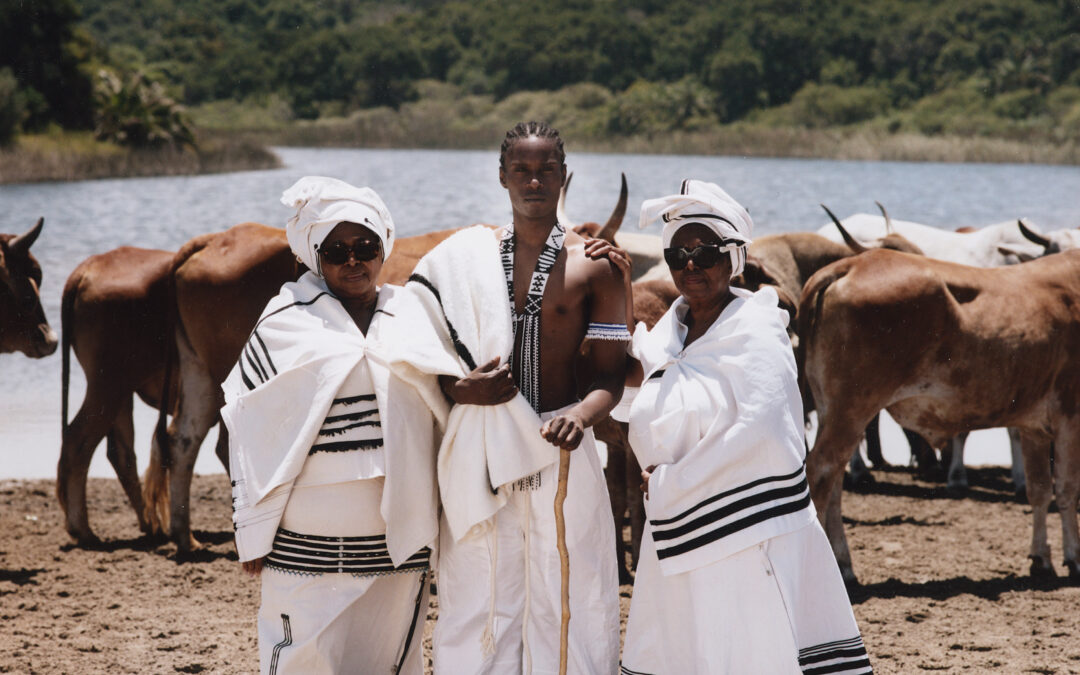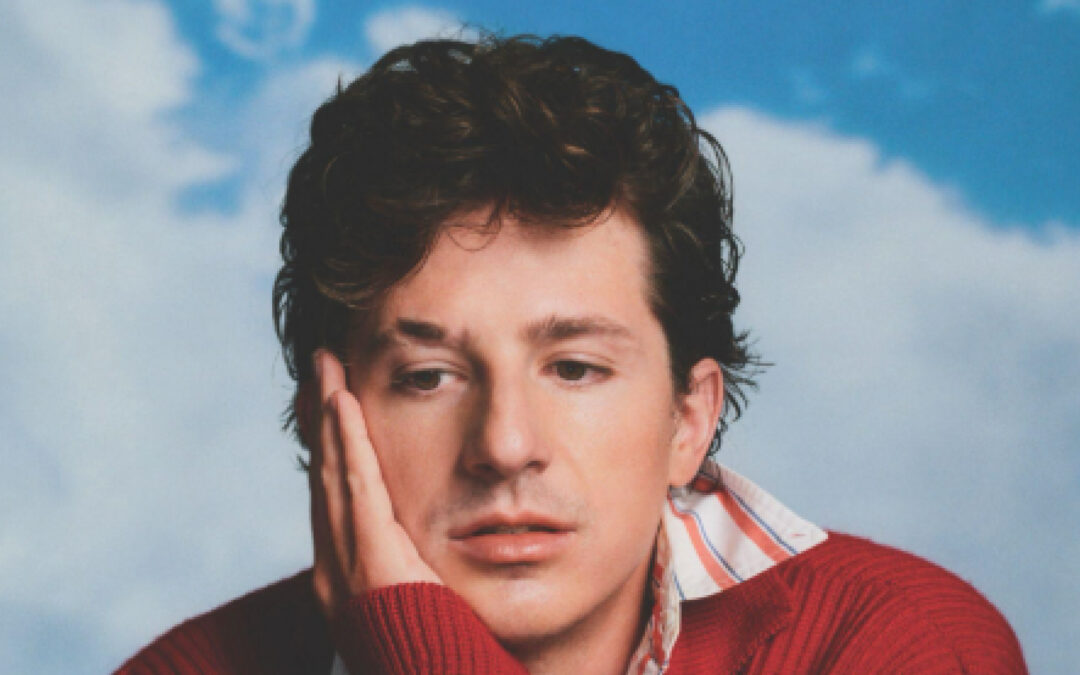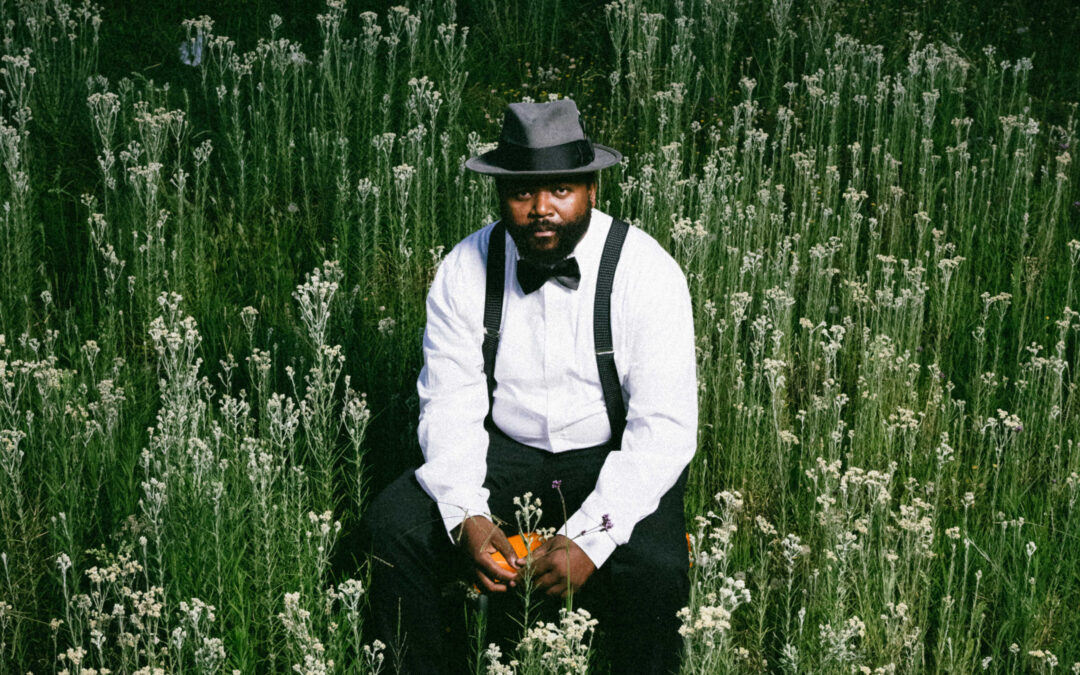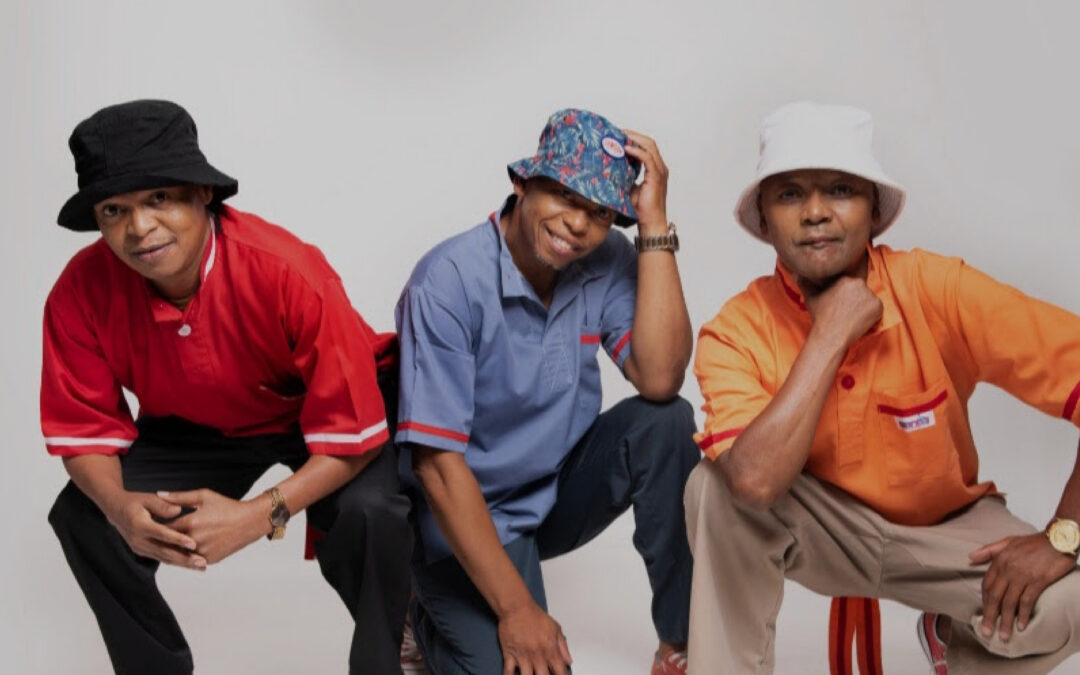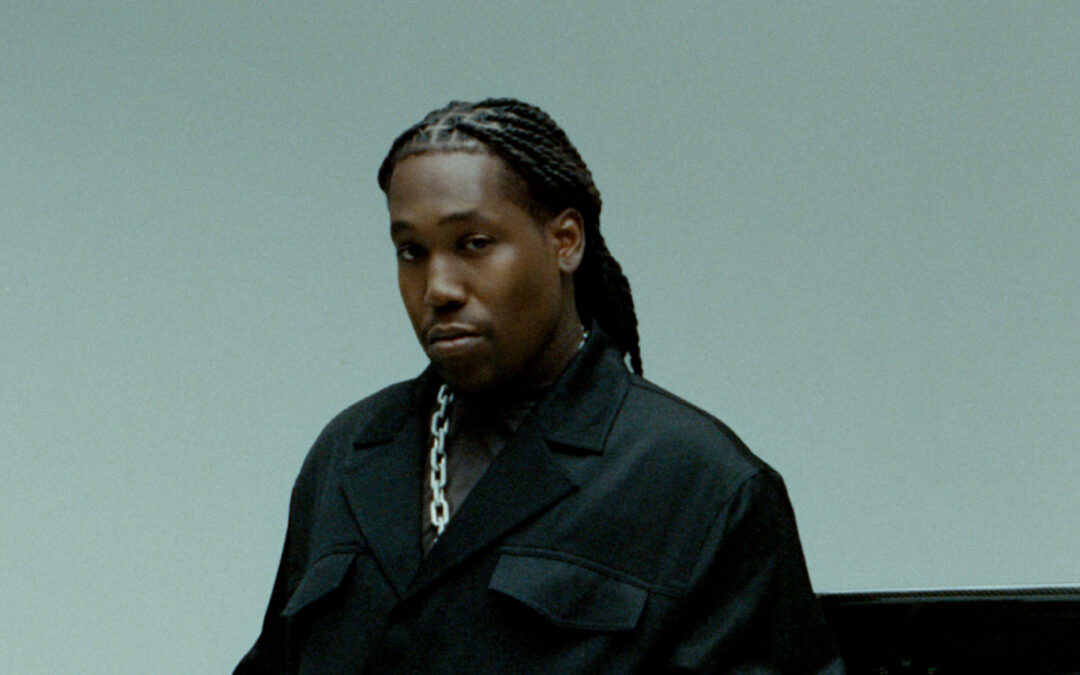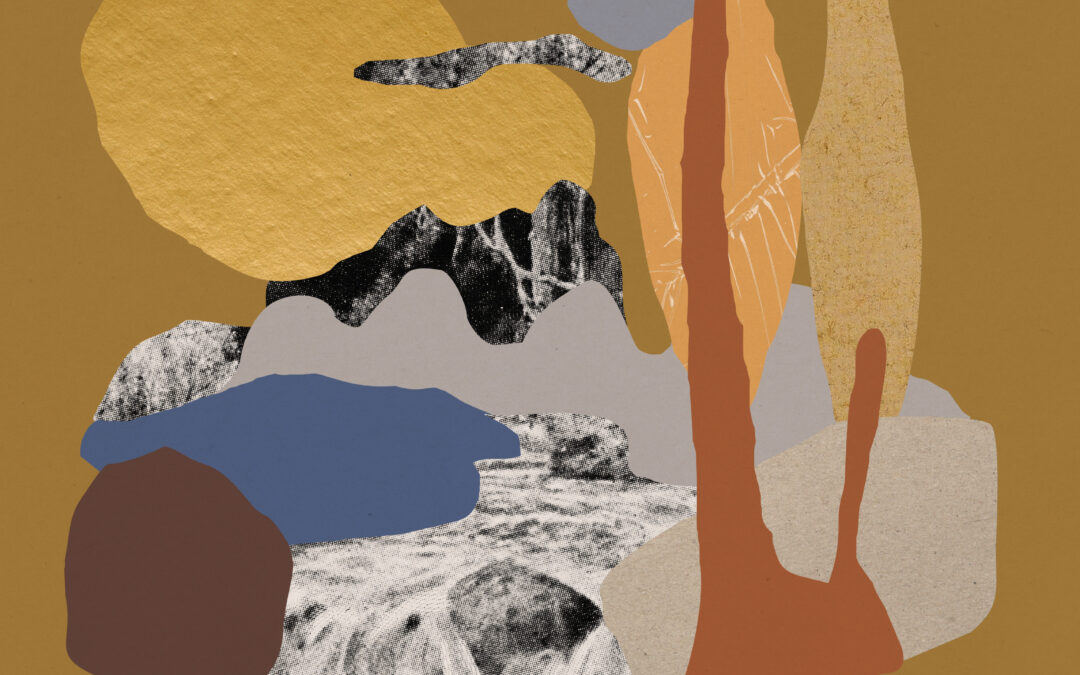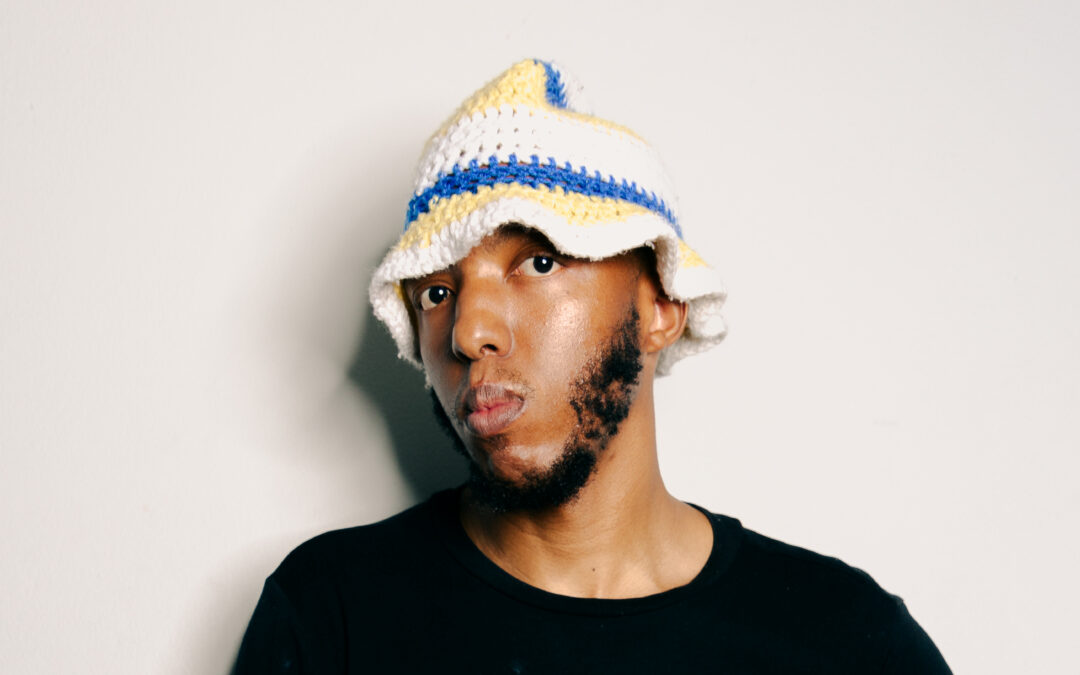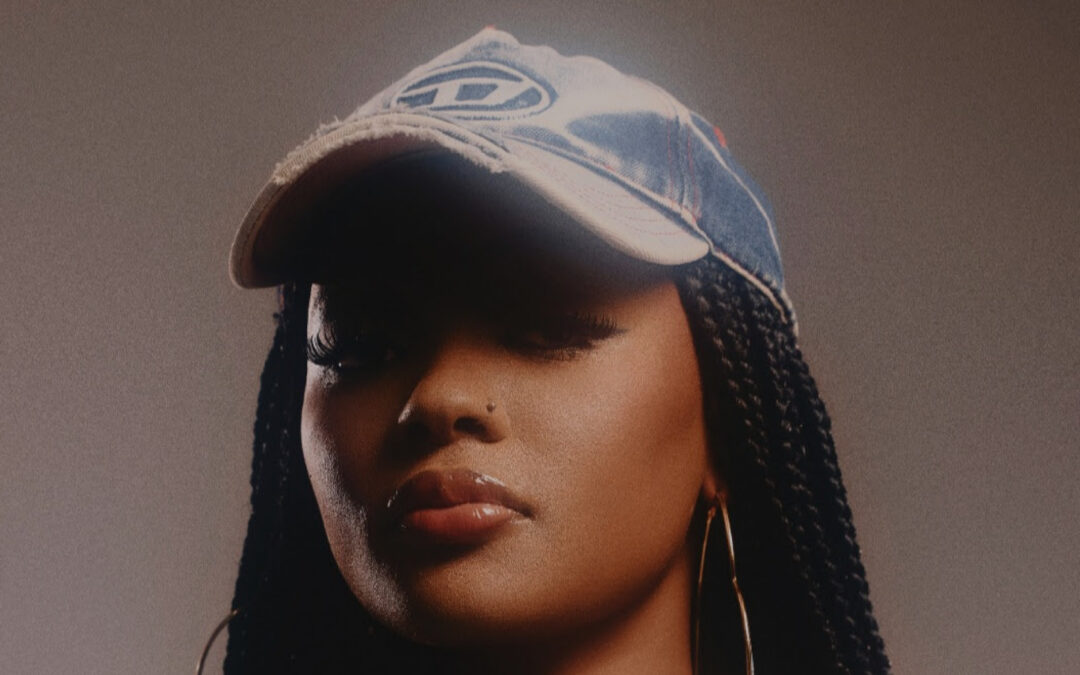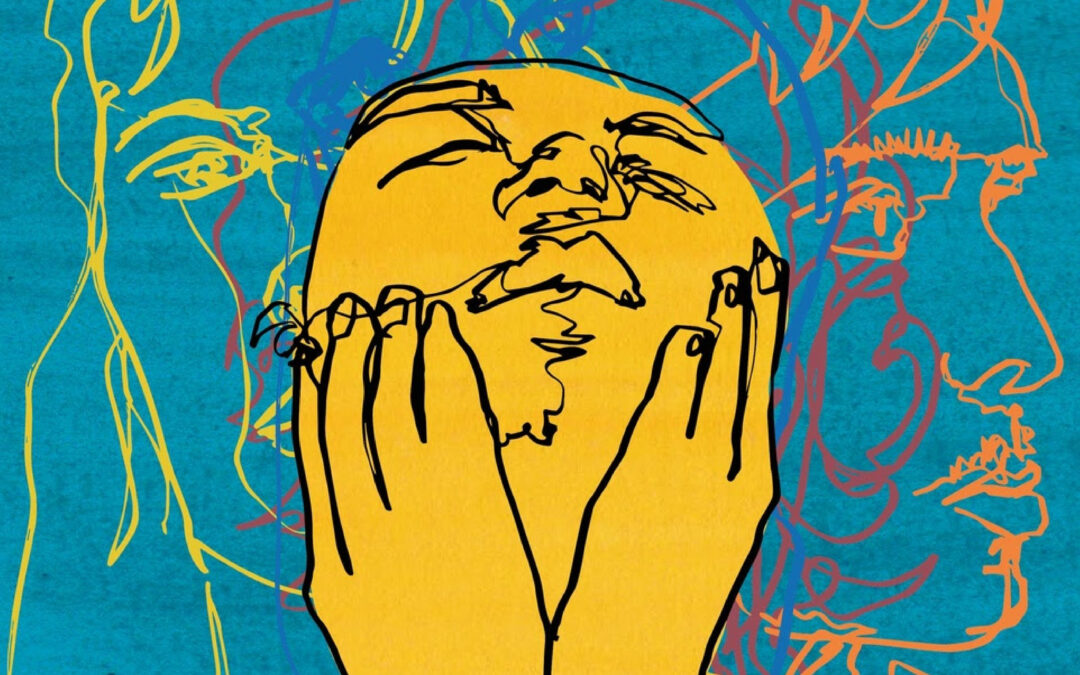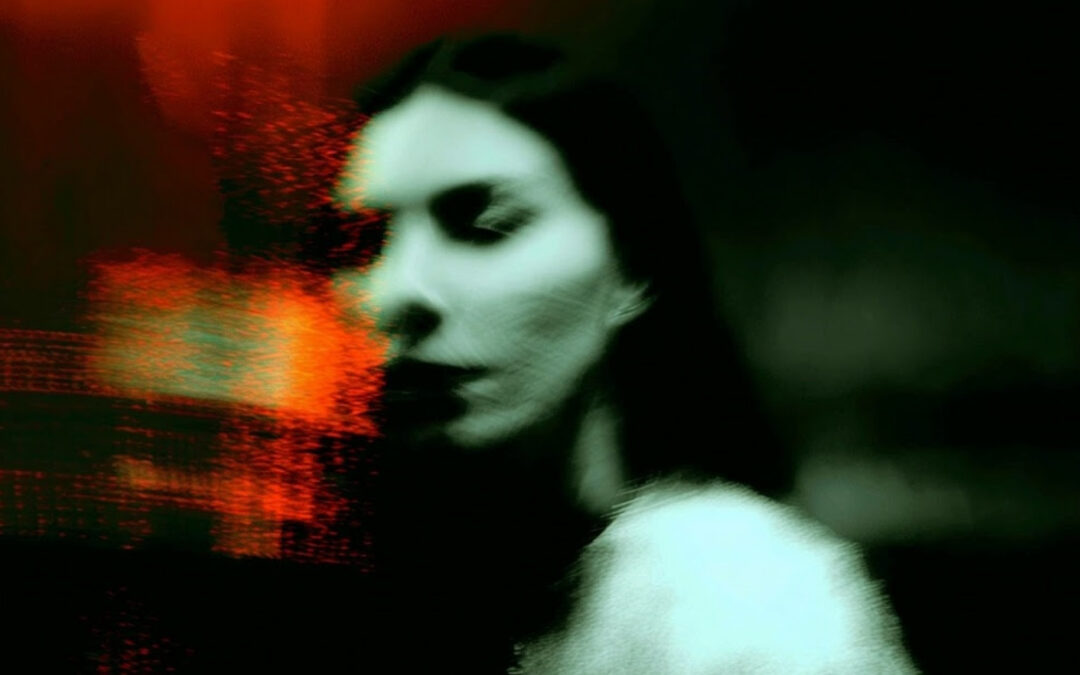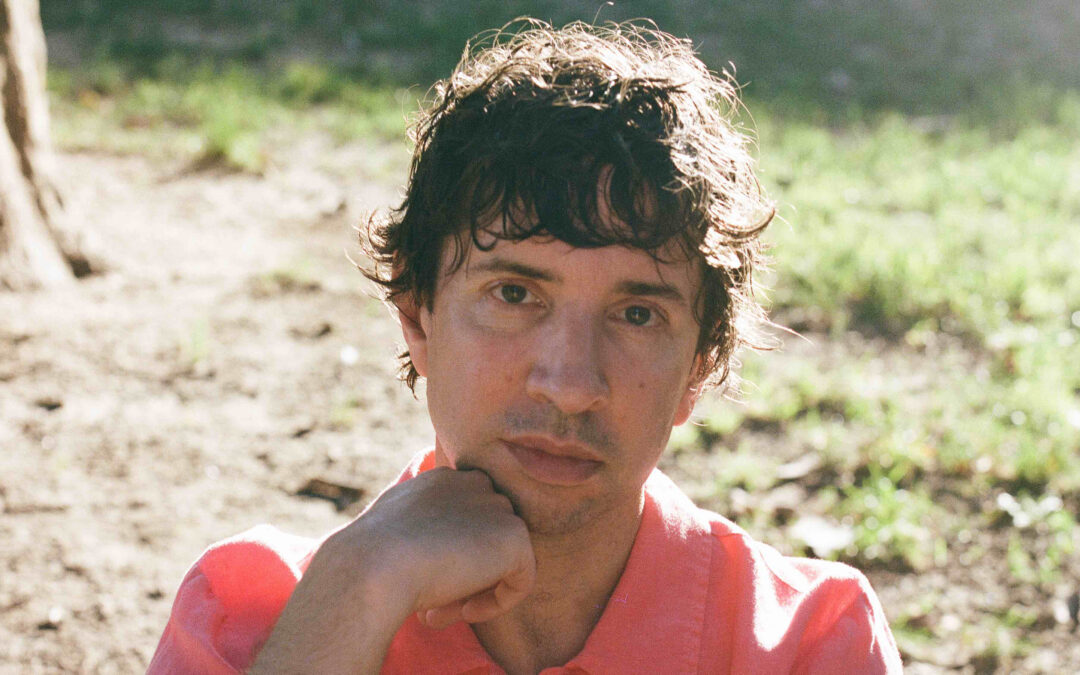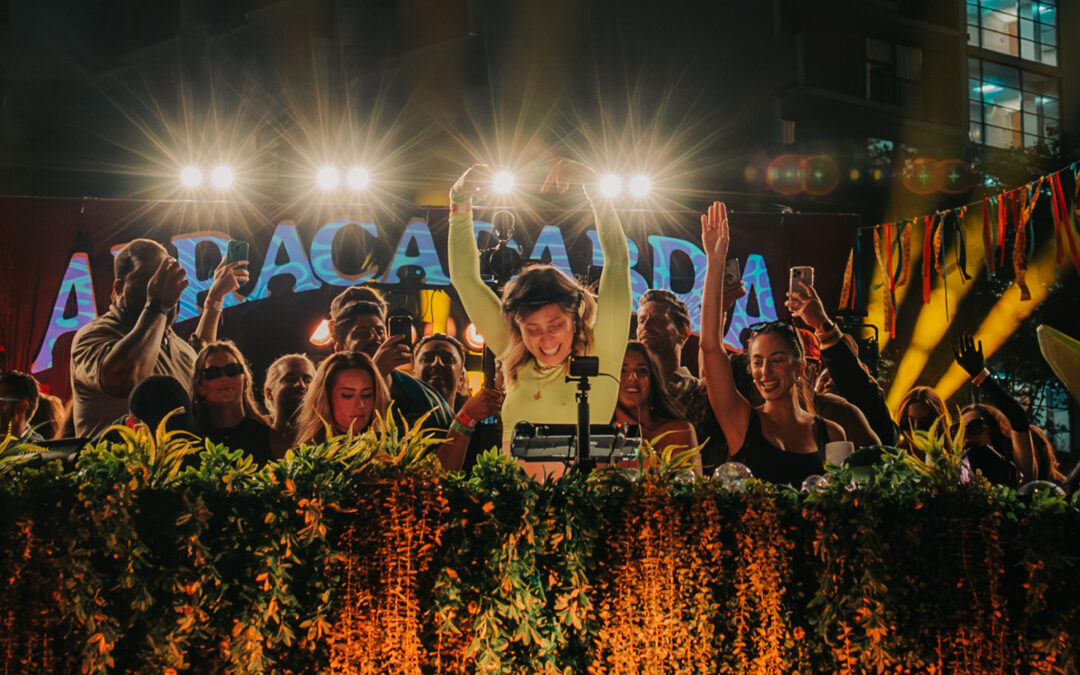The internet has this intrinsic way of warping reality. By the time we have grandchildren, X (formerly Twitter) will evolve into another social media app, and my future grandkids will ask, “Mkhulu, what’s X?” I will gladly reply “The app where Mkhulu first discovered ZuluMecca!” When they ask who ZuluMecca is, I will narrate the story of how in 2020, I discovered Durban-born, Johannesburg-based Mandisa Nduna, who introduced the globe to her musical conduit, ZuluMecca at a delicate time where we could not legally escape to our vices and were compelled to look inward for stillness and healing amidst the chaotic struggle of a pandemic.
The multifaceted creative, who is an award-winning actor, performer, songwriter, South African Hip-Hop Award-nominated musician, began taking the nation by storm in her teens; when rappers such as Eminem, Tupac, Missy Elliot, and Busta Rhymes fueled her affinity for fables, creating characters and storytelling. Mecca started off her creative endeavours as a slam poet and took to different competitions around Durban. It was at one of these competitions that she met a rapper named Emphasis, who after seeing her perform, suggested she try rapping herself. Under his tutelage, Mecca learned what a bar is, how to count bars, how to craft a verse and the essence of the art of rap.
Under the impression that the only subject matter she was allowed to sink into as a rapper was the facade of materialism and women, she spent the latter part of her late teens and early 20s finding her feet, honing her craft and delivering at the time, the fantastical tales and character plays in her quest for recognition. Once undergoing a spiritual journey and accepting a calling from her ancestors, she could no longer write from the fabled perspective of her past fantastical tales and was faced with owning her truth. This is where ZuluMecca was born, and she placed her first digital footprint on the internet, drawing an inferno of social media presence for her intricate verses rooted in philosophy and her ongoing spiritual transformation.
When first coming across Mecca, I like everyone else during lockdown, was doom scrolling and trying to make sense of a “new normal”. It was around this time that she had her moment of breaking the internet with her enthralling #FreestyleFriday submission for the lockdown freestyle series heralded by Hip-Hop legend Stogie T. This track later became an original song (“Of Hue”) on her debut EP “Of Angels and Ancestors.” Mecca swept us off her feet with her thought-provoking pen, always nudging her audience to seek within.
Once she started bubbling under the radar of Hip-Hop purists, she released “Of Angels and Ancestors” followed by an enthralling number of singles, namely “Holy Water (Mama’s Prayer),” “Food and Liquor (feat Stogie T),” and “Good God’s Freestyle” before being announced as the latest signee to avant-garde artist-centric record label STAYLOW.
Following great success with the label and a series of releases, Mecca resists the notion of being boxed into the boom-bap aesthetic we have come to know and love her for and continues to establish a narrative that solidifies her as a musician and coveted songwriter. We find ourselves at the helm of her new EP, “SEAMS,” which takes us away from the lyrical philosopher and invites us into the complex humanity of the Mandisa clothed in Mecca’s skin. Coloured by surprising melodic cadences, uptempo frequencies and soulful cuts, the entirety of this EP has brought us closer into knowing Mecca as a person while striking the perfect chord of being commercially viable without compromising on artistic integrity. With an unyielding curiosity, I took the time to compare and contrast her catalogue and converse with Mecca about her origin story, artistic evolution, discourse towards craftsmanship, finding a balance between art and commerce and more.
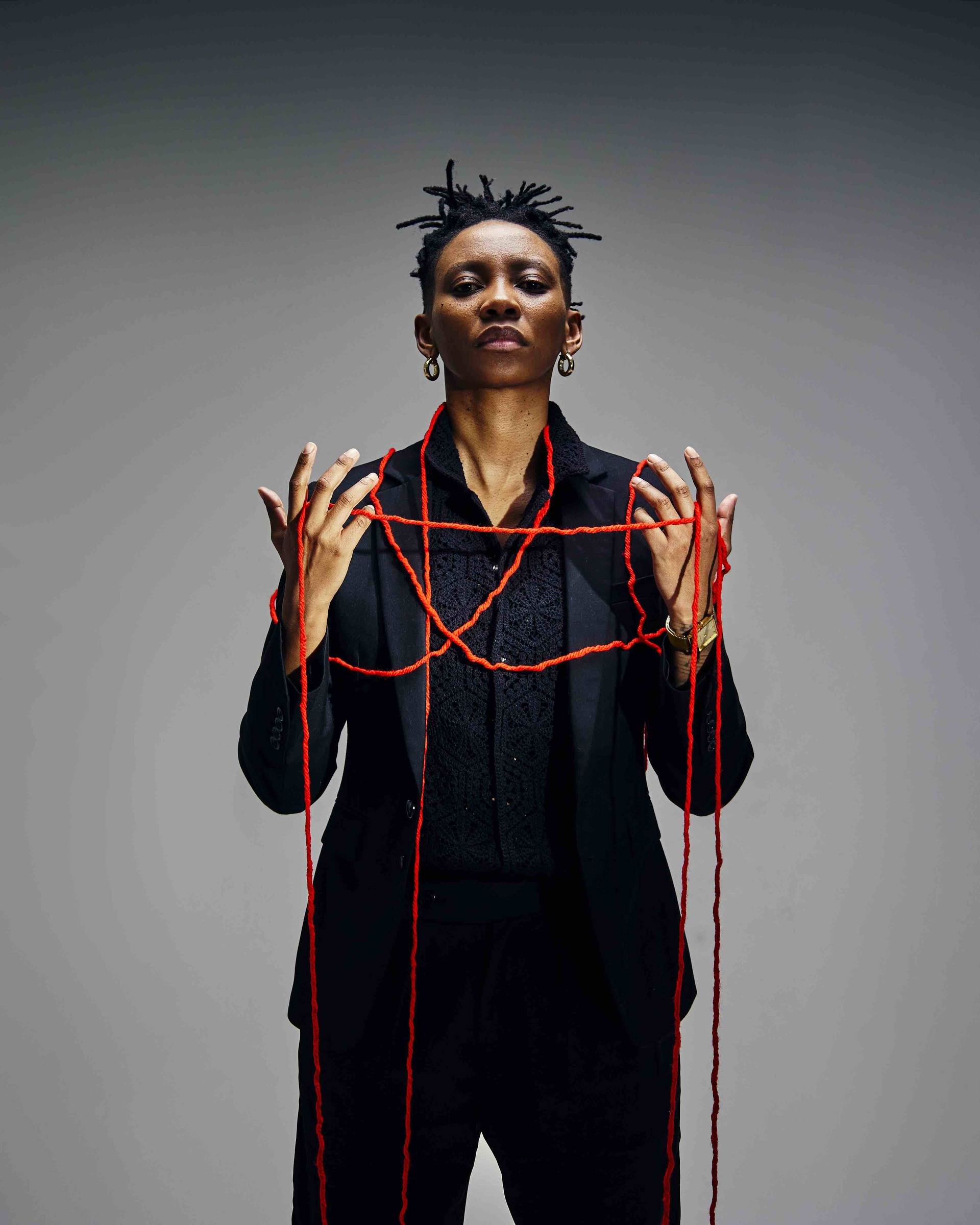
Photography by Children of Midas
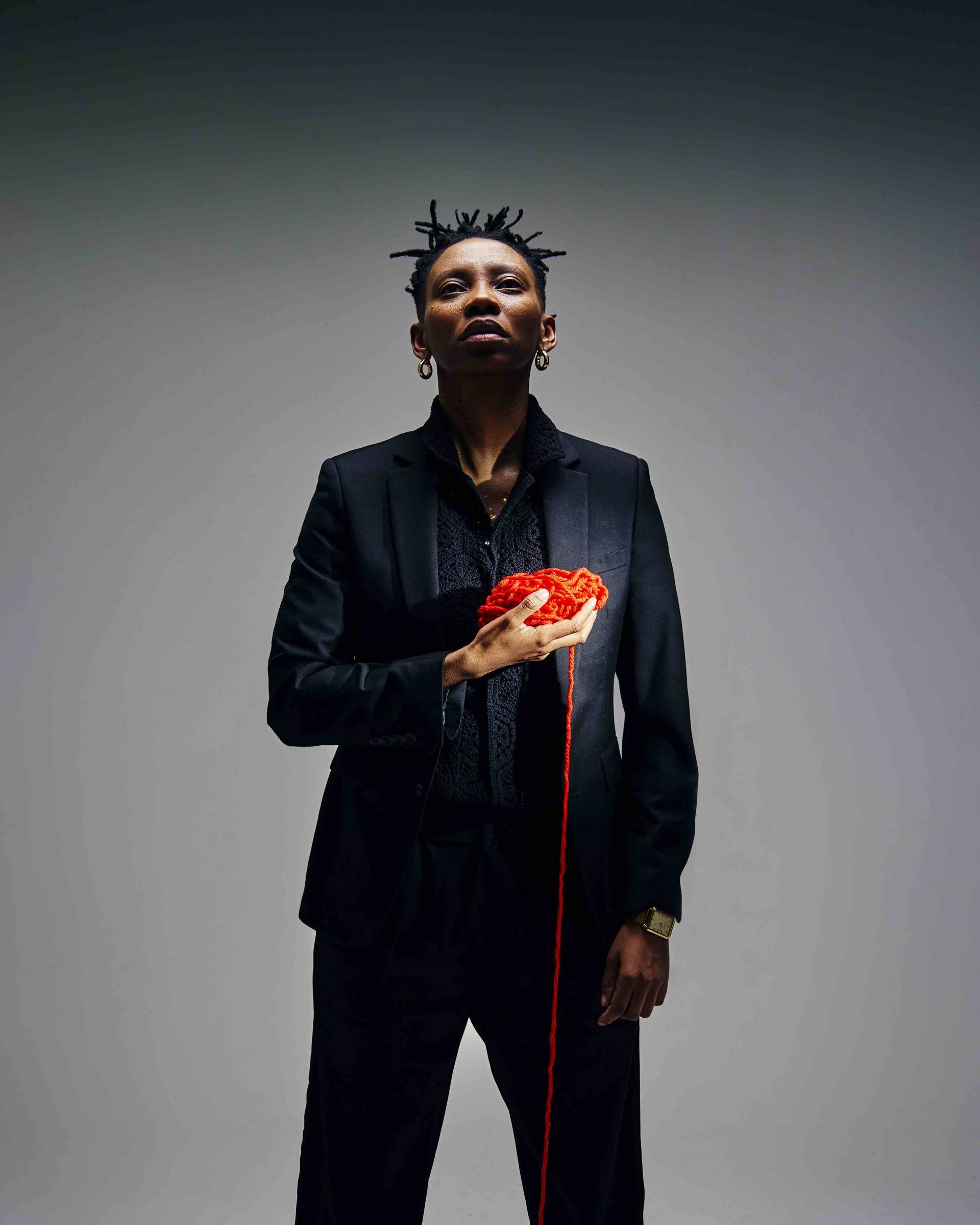
It is often said that it can take 10 years to become an overnight success, and I’d like to start our conversation by defining that. Take me through your upbringing, your clutch collective days and all the events that led up to your calling both in acting and the birth of ZuluMecca?
ZuluMecca: “What a journey it’s been! I’ve always loved words, writing, and storytelling. To be honest, as a child, I used to lie a lot and make up fantastical stories. This was particularly true about my absent father – I let my imagination run wild, inventing various personas for him. Looking back, I realise this was the beginning of my storytelling journey.
As I became a teenager, I discovered Hip-Hop and other storytellers. I was captivated and thought, ‘I want to do that!’ I began with slam poetry, participating in and winning competitions around Durban and at UKZN. At one of these events, a rapper named Emphasis approached me and suggested I try rapping. He taught me the technical aspects and kick started my journey to mastering the art of rap.
My first studio experience came at 19 and went through the motions of discovering my artistic voice. This continued for about eight or nine years until 2019-2020. During this period, I embarked on a personal spiritual journey that made it difficult for me to lie in my personal life. Consequently, I couldn’t lie in my music anymore – I had to use it to tell the truth – my truth.
In 2020, I created an EP, “Of Angels and Ancestors”, in my bedroom studio, mixing and mastering it myself. Though the sound quality wasn’t great, people focused on the words and were moved by what I was saying. This surprised me – I didn’t think anyone would be interested in these introspective thoughts. That’s when I met Vaughn and Shooter, and as they say, the rest is history.”
The SEAMS EP represents your songwriting evolution, where your artistic development took you out of being “boxed” as a lyricist only. Do you pride yourself on being an unrestricted songwriter now?
ZuluMecca: “There are different layers to consider. One is the pursuit of profit, This means creating more performable music that can be shared with diverse audiences. If I made only the music I personally wanted to make, I might struggle to earn, tour, perform, and get booked. It’s a balance between staying true to myself as an artist and writer while creating music that a wider audience can embrace and enjoy. I want people to be moved by my music, not just impressed.
Another layer is the variety of music within me. I’m not limited to one style – I have an “End of The World” vibe that’s neither singing nor rapping but a kind of melodic storytelling. I also have a playful side, which you hear in songs like ‘Right Back,’ where I can get a little goofy. I enjoy that kind of music, too, and want to express myself in various ways.
Initially, I had reservations about some of these diverse songs. When Vaughn suggested putting ‘Right Back’ on the EP, I questioned whether it sounded like ZuluMecca. But that’s exactly the point – we have the power to define who ZuluMecca is. It’s not too late. The conversations with my team were about breaking out of that mindset quickly before others box me in, too. It’s harder to break out of a box the more music you have out there. I feel I’m at a good point now. I’ve established that I can really rap, but now I can start introducing other parts of my artistry and heart.”
Watch “Seams” Visualizer Here
Ever since you released “FABLE”, you’ve been on a quest to balance art and commerce, and you strike that chord perfectly with SEAMS. How challenging was it to create out of your niche pocket? Was it intentional for you to gain new fans?
ZuluMecca: “It’s definitely intentional. I create music for as many people as possible to enjoy, recognising that there are different types of listeners out there. My goal is to serve a wide audience without compromising who I am as a writer.
I was getting comments like, ‘When I listen to ZuluMecca, I need a thesaurus and a dictionary.’ That made me reflect – I don’t want my music to be difficult for people to access. The year I took off really put things into perspective. I realised I could either make another ‘Of Angels and Ancestors,’ ‘Wept,’ or ‘Fable,’ or I could give more people a chance to enjoy who I am as an artist.
I even addressed this shift in my lyrics. In ‘Do You Get Bitches,’ I said, ‘My original fans just won’t understand / But fuck it, we’ll be on the map.’ That was my way of putting out a disclaimer early on. I wanted to prepare my audience for the different types of music they might start hearing from me.
This approach allows me to reach a broader audience while still maintaining my artistic integrity. It’s about striking a balance between accessibility and staying true to my craft. I’m exploring new territories in my music, and I’ve been upfront about this evolution with my fans. They shouldn’t be surprised when they hear these different styles – I told them it was coming.”
As a sonic bedrock, SEAMS challenges the normal sonic aesthetic you have been associated with. How challenging was the beat selection process for making the music we’re enjoying?
ZuluMecca: “It was crucial for me to express myself on different types of beats. While having a signature sound is fine, I’d rather my signature be the quality of my writing than the type of beats I use. I want to be versatile enough to jump on any beat and still maintain my identity.
The EP format allowed me to experiment with various sounds without the pressure of a full album. For instance, ‘Right Back’ with Hannah Ray came from a studio session where we made two songs. We were trying to meet each other halfway, given our different styles. This process of stepping outside myself and collaborating with artists who aren’t necessarily rappers or lyricists like me was important. The same goes for working with Marcus Harvey – I had to meet him where he is artistically because he has a strong sense of his identity, and I needed to match that certainty.
The title ‘SEAMS’ also reflects this process. It’s about unravelling what I thought was together and seeing what I’m made of, quite literally. It’s an exploration of my artistic components and how they come together in new ways.”
Watch “Right Back” Visualizer Here
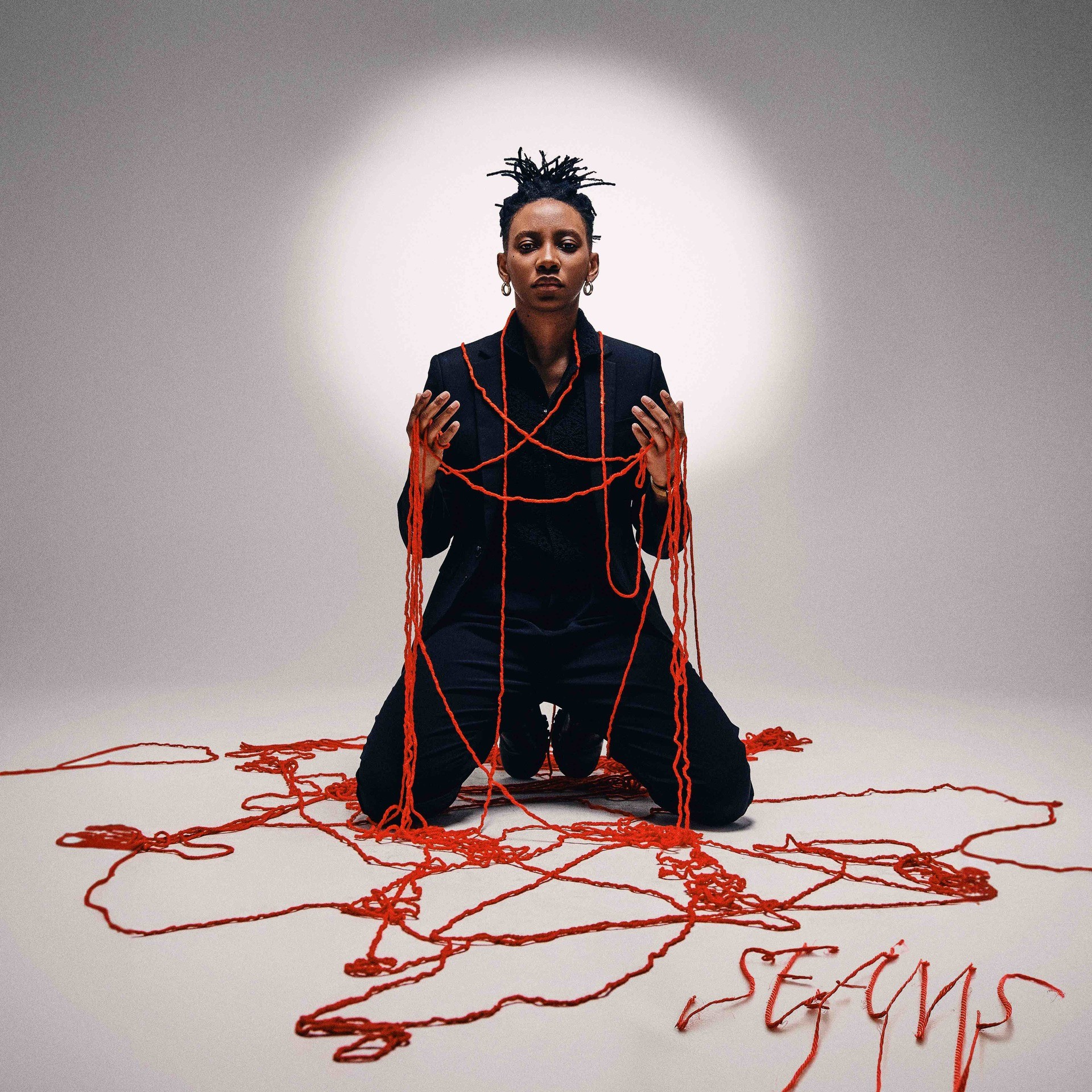
Photography by Children of Midas
Between “Head Over Healing” from “FABLE”, not to mention “End of The World” and “Leave” from “SEAMS”, you have a complicated history with love. What seems to be the underlying factor that prevents you from having a smooth-sailing relationship? Do you revel in the musings of heartbreak?
ZuluMecca: “My music reflects my long and complicated history with ex-partners, even though I’m in a different place now. I often write in retrospect, telling stories from my past experiences. To be honest, I don’t really enjoy creating happy love songs. While I enjoy love and being happy in my personal life, when it comes to music, it’s challenging to write about these feelings without sounding corny. That’s why I haven’t written much in this vein, even though I’ve felt those emotions. I’m trying to reach a point where I can write about love without finding it cringeworthy, but it’s a process.
In my quest to write more positive music, I will eventually write that love song. But it needs to be done in such a clever way that I don’t feel weird or uncomfortable about it. I’m not sure if it’ll make it onto the upcoming album, but it would be nice if it did. Either way, I’m determined to find that ‘love song Mecca’ one day. It’s a goal I’m working towards in my artistic development.”
You are also an award-winning actor who has acted in films and series such as Blood Psalms, Miseducation, and Stillborn. How do you differentiate between being on set and being in the studio? What are some of the preparation rituals that get you in character?
ZuluMecca: “My background in acting actually makes it easier for me. I’ve studied and practised acting since I was very young, performing on stage, taking drama in high school, and even earning a degree in drama and performance studies. This formal education has given me a solid foundation in both the theory and practical aspects of acting.
When you study acting, you learn specific rituals to get into and out of character. One of the first things we’re taught is not to take the character home with you. This training helps me navigate the acting process more smoothly.
Rapping, on the other hand, is more challenging for me. In acting, someone else brings me the story and the words, and my job is to bring them to life. But with rap, I’m responsible for the entire creative process. I’m setting the scene, creating the location, developing the characters, and voicing them. The whole story is up to me when it comes to rap.
ZuluMecca is also a character in a way, so it’s like stepping into a different superhero costume. I have to completely step out of my acting role before I can step back into who ZuluMecca is. I can’t wear both costumes at the same time – it’s a process of fully embracing one role before transitioning to the other.”
Thank you for joining us for this interview. Before you go, could you let us know what more we can expect from SEAMS and your creative career as a whole?
ZuluMecca: “There’s a lot happening this year. On the music front, the visualizers for SEAMS are dropping on YouTube soon. I’ve also been working on several collaborations. I started the year with a Priddy Ugly collaboration and just released a cool feature with Originelle. There are more features coming up with some really great artists outside of my usual circle. I’m also featured on some exciting tracks that will be released this year.
Of course, the big news is my debut album. We’re working hard on that, and it should be really beautiful when it’s finished. As for my acting career, I’m currently shooting a show for Showmax called “Empini”. You’ll be able to catch me in that soon. There are quite a few other interesting projects in the pipeline, but due to NDAs, I can’t disclose all the details just yet. Stay tuned, though – there’s a lot more coming soon!”
It goes without saying that one of the thinnest lines any artist can walk is balancing the dreaded scale of art and commerce. It is somewhat daunting that after decades spent honing the ability to bend words to one’s will, one still has to bend themselves to the standard the creative industry deems mainstream when expression shouldn’t ideally be commodified. The silver lining I find is in the creative challenge of pushing the needle with one’s craft, and ZuluMecca is well on her way to being a mastermind who figures out the Matrix and bends reality to her will. It seems to me that we have an era-defining virtuoso who prides herself on being one of a generation; I am eager to witness her shift the culture with her Pulitzer-worthy pen.
Connect With ZuluMecca:
X : @ZuluMecca
Instagram: @zulumecca
Facebook: @ZuluMecca
Tik Tok: @ZuluMecca
YouTube: @ZuluMecca
Written by: Cedric Dladla
For more news, visit the Connect Everything Collective homepage www.ceconline.co.za

